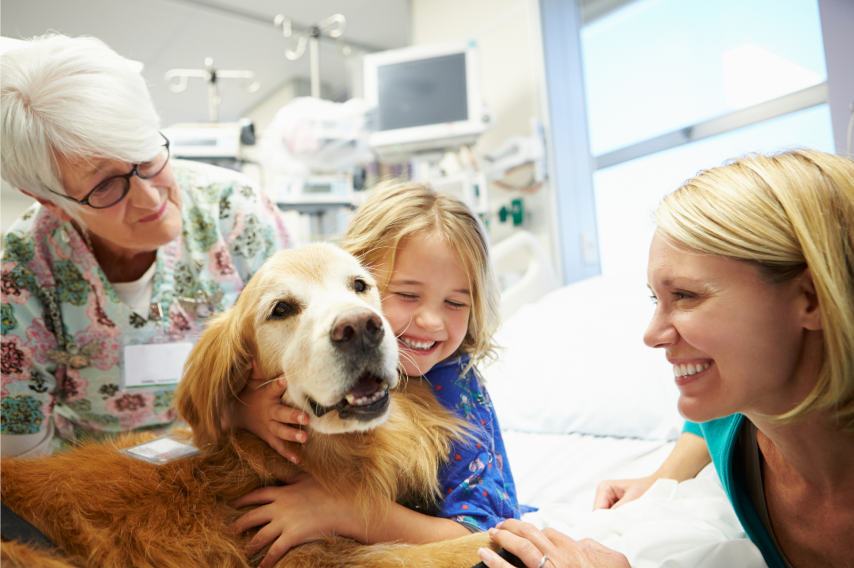Pet Therapy Offers Many Benefits
We feel so much happier and calmer when we’re with our animals that many of us wonder if they would be able to bring the same joy and peace to other people.
But the fact is that your pet may not have a good experience in many pet therapy scenarios, no matter how loving and empathetic they are. Unexpected and stressful events are relatively rare when pets and patients interact but they can derail what would otherwise would be a wonderful, uplifting moment.
Dogs, cats, horses and other species can help people whether those people are studying for finals or recovering after chemo, but they’re most likely to be able to help a variety of people if they have certain personality traits:
- They’re outgoing and loving toward most everyone they meet, without seeming less comfortable or overly rambunctious around certain categories, ie, men versus women.
- They can withstand some physical discomfort and may be considered “saints” around young children or others who may pull an ear or a tail, though they should never face any kind of abuse in a therapy setting.
- They have a calm demeanor – you may find your dog’s exuberance and excitement around people adorable and energizing, but people who are struggling with physical or mental stress may not see him the same way.
- They’re not easily spooked. Therapy can take place in hospitals, nursing homes, schools and other environments where they hear machines and people make noises, need to get into and out of elevators, etc.
Pet therapy is used to benefit humans in some ways you’d expect, like providing companionship, developing social skills and promoting relaxation, and others you might not, including improvement of motor skills and joint movement and encouraging people to exercise more regularly.
Interaction with animals, whether they’re your own pet or a therapy animal, has been shown to reduce blood pressure, tamp down the production of the stress hormone cortisol and ramp up the serotonin, enhancing physical and mental health in the short term, so with repeated exposure the positives for your health continue to add up.
If you believe your dog might have the temperament to be a therapy animal, you can pursue the idea by going together to an obedience class to learn the basic commands and cues for maneuvering in public, if you haven’t already. The AKC Good Canine Citizen program is one well-respected source for this kind of training.
Moving ahead, you and your dog can move ahead through more specialized training, either starting with a private trainer or going straight to local organizations offering training and/or certification. Pet Partners of Prescott (whose parent organization Pet Partners offers certification for eight other species as well) and Dandy Dawgs are two sources you can contact for more information.

